Ngā Tohu Rangahau LDC
LDC Fellowships
Applications opened 1 May and closed 30 June 2025.
LDC Fellowships support high potential mid to senior leaders across the Public Service to identify system leadership challenges and opportunities, and undertake international research and study to address these. Each LDC Fellowship provides up to NZ$50,000 for travel, accommodation and/or development activities.
Who can apply?
Fellowships are sponsored by contributing public sector agencies. Individual mid to senior leaders from sponsoring agencies are eligible to apply. We also strongly encourage joint applications from multiple agencies to demonstrate the cross-system collaborative approach to public sector leadership.
All applications require chief executive approval and supporting reports from two referees.
This year’s Fellowships themes focus on research/study that builds leadership capability in the context of a unified public service, where ‘spirit of service’ is strong by, either:
-
Building leadership capability that promotes working collaboratively across sectors and agencies to deliver efficient results and shared outcomes or respond to disruptive events, or
-
Building leadership capability that supports collaborating widely with communities and the public to strengthen citizen participation in policy design and service delivery and/or the devolution of services, or
-
Strengthening leadership at a system level that fosters long-term thinking, sustainability and resilience, and increases the ability of the public service to adapt to meet present and future challenges, such as emerging technologies and other global and domestic threats and opportunities.
We target our Fellowships to both develop the individual recipient and build on the shared leadership knowledge of the system. Fellowships may include formal and/or practical experience, and/or research and study on leadership development.
Requirements and eligibility
-
Applicants must be a permanent staff member from one of contributing public sector agencies.
-
Priority will be given to mid to senior leaders who have not had recent significant system investment.
-
An applicant must:
-
-
be a mid to senior manager with significant staff, policy, functional or project responsibilities
-
-
-
be motivated to learn from their experiences and able to put knowledge gained to effective use in the New Zealand public sector
-
-
-
demonstrate strong personal and intellectual qualities, and performance
-
-
-
be endorsed by their chief executive to be a high-potential and influential leader.
-
Chief executive endorsement
Chief executives and human resource managers should:
-
identify high-potential leaders with a performance track record
-
ensure the right applicants apply for the Fellowship
-
ensure applications meet the required criteria
-
provide successful Fellows with opportunities to share learning in agency work programmes.
In endorsing your application, the employing agency is seeking system prioritisation of your development and needs to commit to supporting this. This may be through provision of leave (paid or unpaid leave), coverage of insurance while travelling, and/or providing opportunities for the research or learning to the shared with other public sector leaders on their return.
The agency is also expected to facilitate the Fellowship by covering the initial costs (for example flight and accommodation costs) and seeking reimbursement of these via itemised invoice to the Leadership Development Centre.
Application process
Applications closed 5pm, 30 June 2025.
Late applications will not be accepted. Interviews will be held in Wellington and we will advise you of the outcome of your application shortly after interview.
We encourage you to email LDCprogrammes@ldc.govt.nz to discuss your application with us prior to completing the application form.
Application form
Selection process and criteria
Applications will be assessed by the LDC Fellowship selection panel.
Each application will be assessed for:
-
the relevance of the project to the New Zealand public sector – and the applicant’s potential impact on completion
-
maximising the value of the Fellowship through learning from a combination of study and/or research and/or practical experiences
-
the feasibility of the proposal to be completed in the time and funding available.
Shortlisted candidates will be interviewed by a panel of chief executives and senior leaders in July 2025. Awardees will be confirmed by the end of July 2025.
Contact
If you have any questions, email ldcprogrammes@ldc.govt.nz
2024 Fellowship recipient
Ben Clark
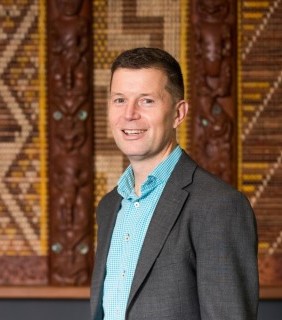 “We need to set our future public service leaders up for success by developing them, not solely as leaders, but as effective system leaders. What sort of leadership skills and capabilities are key to system leadership and how do they differ from leading teams, functions or even an agency? What works well? What’s different across regions? What’s required to develop our leaders better to collaborate for their communities?”
“We need to set our future public service leaders up for success by developing them, not solely as leaders, but as effective system leaders. What sort of leadership skills and capabilities are key to system leadership and how do they differ from leading teams, functions or even an agency? What works well? What’s different across regions? What’s required to develop our leaders better to collaborate for their communities?”
Ben is the Director Pae Ora (Healthy Futures) at the Department of Corrections – Ara Poutama where he is responsible for operational delivery of offence-focused rehabilitation, disability and health services. Ben’s time as the Regional Public Service Commissioner for Canterbury and Chatham Islands really stoked his interest in building unity of purpose.
Ben’s Fellowship: ‘Joining the dots: how do we help our people lead complex systems’ will explore system leadership and its value, informed by case-studies, leadership models and mātauranga Māori.
As part of his fellowship Ben will evaluate real world case studies against system leadership criteria, interview leaders, test emerging themes with system and functional leaders across New Zealand and Australian Government and attend a Harvard-based leadership programme.
2021 Fellowship recipient
Joyce-Anne Raihania, Ministry for the Environment - Te Manatū Mō Te Taiao
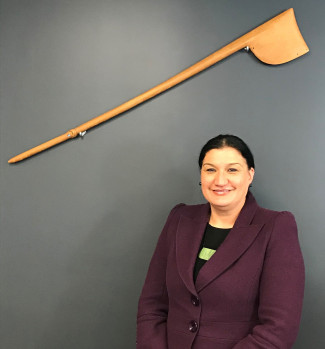 Ko Putahi te maunga
Ko Putahi te maunga
Ko Wairoro te awa
Ko Ngātokimatawhaorua te waka
Ko Te Kotahitanga te marae
Ko Te Kapa tōku whānau
Ko Te Aupōuri me Ngāpuhi ngā Iwi
Ko Francis Raihania tōku hoa rangatira
Ko Joyce-Anne Raihania ahau
“I want to show by strengthening the Māori Crown Relations we can all learn from each other as Treaty partners, to enable positive outcomes for all of Aotearoa”.
Through completion of an autoethnology thesis paper, Joyce-Anne will explore the role public servants play in strengthening Māori Crown relationships based on her extensive public sector career.
With significant leadership roles in local and central government, she will share her experiences working with and for Māori. She also plans to acknowledge those that had the vision over the years, both Māori and non-Māori, to tautoko (support) her journey to understand the need to fulfil Treaty partnership obligations. In her thesis, she will demonstrate the role of the ‘Pae Ora – Healthy Futures’ Māori framework, developed by Sir Mason Durie, and how this has enriched her understanding and knowledge of integrating academic tools within public sector processes. She will also share how she applied this framework when developing Te Ao Hurihuri – Transformational Gains strategy.
Te Ao Hurihuri was launched in July 2020 at Ministry for the Environment and is currently being implemented. It aims to build both individual and organisational cultural capability and capacity so staff can confidently, competently and effectively engage with our Treaty partners.
The thesis paper will see the completion of Joyce-Anne’s Master of Health Science from EIT in Hawke’s Bay.
Joyce-Anne feels very privileged to be awarded the 2021 Leadership Development Centre Fellowship and acknowledges her endorsements from her Ministry leaders, Vicky Roberston, Secretary for the Environment and Chief Executive and Melanie Mark-Shadbolt, Deputy Secretary Tūmatakokiri, alongside Mere-Hēni Simcock- Reweti, Director Māori Crown Relations, Te Arawhiti.
Joyce-Anne stands beside a Toki gifted to the LDC by Miranga Tira participants to acknowledge the importance of Māori leadership development and the LDC’s role in future proofing this kaupapa for the state sector.
2020 Fellowship recipients
David Hammond, Treasury
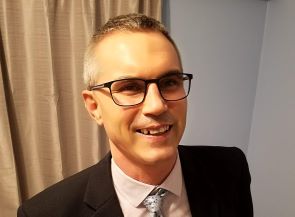 "I want the public service to use disability as a vehicle for real innovation and release our untapped potential.”
"I want the public service to use disability as a vehicle for real innovation and release our untapped potential.”
David will look at recruitment processes used overseas that enable neuro-diverse individuals to have greater representation in the state sector. He will explore work environments that are neuro-diverse friendly, and will test if these are scalable and can be used in New Zealand.
David will also explore the leadership needed to go beyond enablement and see neurodiversity as a competitive advantage that can be targeted for the benefit of the state sector.
Read David's Fellowship report
Serena Curtis-Lemuelu, Ministry of Social Development
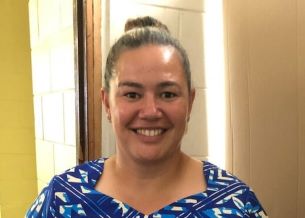 “I want to grow my understanding of system change, including indigenous models, how culture plays a role in system change and implementation, and the importance of leadership in system change.”
“I want to grow my understanding of system change, including indigenous models, how culture plays a role in system change and implementation, and the importance of leadership in system change.”
Serena will explore how social inequality has been addressed internationally and what challenges and success factors have an impact. She will look at the type of leadership required to successfully bring about system change, how cultural considerations can be taken into account, and how this can be applied in the New Zealand context for Pacific and Māori communities.
Previous Fellows
2019
Denise Hing and Richard Foy
Denise Hing is Group Manager, Strategic Business Development, NZ Customs Service. Richard Foy is Chief Archivist, Department of Internal Affairs.
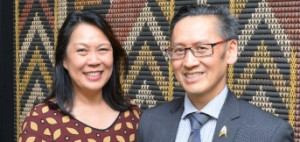 In this joint-Fellowship, Denise and Richard will explore how Asian leaders can grow and flourish in the New Zealand Public Service while nurturing their cultural identity and maximising their leadership contribution.
In this joint-Fellowship, Denise and Richard will explore how Asian leaders can grow and flourish in the New Zealand Public Service while nurturing their cultural identity and maximising their leadership contribution.
The lack of ethnic diversity in management has been recognised as a key challenge in the SSC Public Service Workforce Data 2018. Asian (and Māori and Pacific) ethnicities are still under-represented in the top three tiers of Public Service management. Denise and Richard’s research will help inform how to address this challenge. They will:
- take a 360 view of leaders and uncover global insights
- learn directly from leaders and experts in the field in New Zealand and overseas, and
- explore the developments, successes and lessons learnt other jurisdictions.
Rose Jamieson
Rose is Acting Deputy Secretary, Parent Information and Community Intelligence, Ministry of Education.
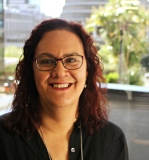 Rose’s Fellowship aims to create a strong picture of what dynamic leadership for the New Zealand public sector needs to look like in an age of complexity and rapid change.
Rose’s Fellowship aims to create a strong picture of what dynamic leadership for the New Zealand public sector needs to look like in an age of complexity and rapid change.
Rose will investigate the type of leadership styles needed to build a responsive and adaptive public sector. Rose intends to create case studies to help leaders lean into new ways of working. Through her research and study programmes, Rose will explore:
- the exponential changes in technology and demographic shifts likely to impact New Zealand’s Public Service and workforce
- how to successfully collaborate for collective impact, including the importance of having diverse perspectives and cultural competencies
- how cultural or indigenous framing or model can be applied more widely in the public sector to serve its communities.
2018
Richard Hamblin
Richard Hamblin is Director of Health Quality Intelligence at the Health Quality and Safety Commission.
 Richard investigated how organisations can successfully drive delivery through data and analytics. His aim was to focus on understanding what makes a great leader of data-driven organisations. He wanted to contribute to the public sector’s development of the right people to lead transformative data teams.
Richard investigated how organisations can successfully drive delivery through data and analytics. His aim was to focus on understanding what makes a great leader of data-driven organisations. He wanted to contribute to the public sector’s development of the right people to lead transformative data teams.
Richard undertook research and visited organisations in New Zealand and overseas that have world-leading data and analytics teams and have helped transform their organisations into being genuinely data-led.
View Richard's fellowship research and presentation
Ezra Schuster
Ezra Schuster is Director of Education, Bay of Plenty-Waiariki at the Ministry of Education
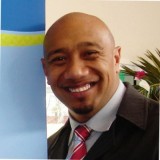 Ezra’s Fellowship focus was how divergent agencies and organisations work in partnership with education, health and social providers to achieve positive outcomes for children and young people.
Ezra’s Fellowship focus was how divergent agencies and organisations work in partnership with education, health and social providers to achieve positive outcomes for children and young people.
Ezra examined diverse cultural and social contexts: a successful education programme in Swansea, Wales, and how the city of Leeds has developed its approach to implementing its vision of a 'Child Friendly City'. Ezra also attended a leadership development programme at Oxford University.
Helen Potiki
Helen Potiki is Director, Policy at the Ministry for Women.
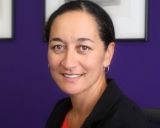 Helen examined how public sector leaders can set up, facilitate and negotiate flexible work arrangements and other innovative workplace practices to deliver effective public services to diverse communities.
Helen examined how public sector leaders can set up, facilitate and negotiate flexible work arrangements and other innovative workplace practices to deliver effective public services to diverse communities.
Helen met with leaders in New Zealand, Australia, Sweden and the United Kingdom - countries with increasing diverse populations and a focus on innovative workplace practices. Helen also attended a five-day workshop ‘Putting People First: Quality public services in a changing world’ at Public Administration International, London.
Listen to updates in Helen's LinkedIn video logs
Eru Lyndon
Eru Lyndon is Regional Commissioner for Social Development, Northland/Te Taitokerau, at the Ministry of Social Development.
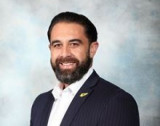 Eru's aim was to learn more about how to develop customer-centric services and product innovation, using processes such as design-thinking, and how these approaches can be embedded in organisations.
Eru's aim was to learn more about how to develop customer-centric services and product innovation, using processes such as design-thinking, and how these approaches can be embedded in organisations.
By combining this new knowledge with his ability to navigate Te Ao Māori and Te Ao Hurihrui, Eru explored how transformative business models with a digital focus, can create new ways to deliver products and services effectively to Māori. Eru applied his new knowledge to three national programmes focused on at-risk children.
As well as visiting organisations in New Zealand and North America, Eru attended Stanford’s Design Thinking Boot Camp and MIT’s ‘Digital and Social Media Analytics’ programmes.
Marie Long
Marie Long is Director of Planning, Permissions and Land at the Department of Conservation.
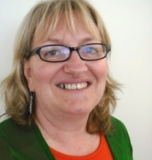 Marie explored the innovative approaches that international jurisdictions are taking in natural resources regulation. She wanted to find out more about regulation models based on customer-centric design and shared decision-making.
Marie explored the innovative approaches that international jurisdictions are taking in natural resources regulation. She wanted to find out more about regulation models based on customer-centric design and shared decision-making.
Marie also looked at understanding how the rights of indigenous people are applied in the design and application of regulation. Finally, she explored the response to increasing tourism on protected natural areas. As part of the Fellowship programme Marie attended the London School of Economics to complete a short course in regulation.
2017
Kellie O'Sullivan
Kellie is the General Manager, People and Performance, Ministry of Justice.
Focus: Exploring the future of HR and large-scale transformational culture change.
Murray Young and Tracy Voice
Murray is the Chief Information Officer, New Zealand Customs Service and Tracy Voice is Director, Business Technology and Information Services (CIO), Ministry for Primary Industries.
Focus: Jointly undertaking a joint study programme looking at the use of emerging technologies to improve government interaction with citizens, focusing first on border control.
Blair McKenzie
Blair is the Auckland Regional Commissioner at the Ministry of Social Development.
Focus: Utilising education and experiential learning opportunities to understand existing best practice for leading diverse ethnic groups in a New Zealand context.
2016
Jayne Russell
Jayne is the General Manager, Employer Services, Ministry of Social Development.
Focus: Businesses' corporate social responsibility (CSR) approaches. Maximising employment opportunities for clients was a priority objective. Jane applied her Fellowship learning to how relevant government agencies can better take a whole-of-government approach to working with the private sector in their provision of employment. Her proposal was submitted under the 'Better Public Services' theme and she is looking at leadership that builds sustainability, resilience and connections.
2015
- Joint winners: Lis Cowey: Programme Director, Service Support and Design at the Ministry of Business, Innovation and Employment and Sally Washington: Programme Manager, The Policy Project, Improving the quality and performance of policy advice, Department of the Prime Minister and Cabinet.
View their fellowship reports - Evelyn Wareham: General Manager, Customer Insights, Analytics and Research, Statistics New Zealand
- Tania Warburton: Deputy Chief Legal Counsel, Ministry of Justice.
Pre-2015
- Carolyn Risk, Ministry of Social Development
- Robert Brodnax, New Zealand Transport Agency. View his paper and fellowship presentation
- Bryan Chapple, Ministry of Business, Innovation and Employment
- Janine Dowding, Ministry of Social Development
- David Habershon, Ministry for Social Development and Craig Soutar, NZ Transport Agency
- Karl Le Quesne, Ministry of Education
